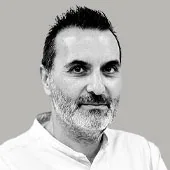Police dismantle the world’s largest drug trafficking organization, which used Valencia as a logistics base

Friday, July 19, 2024, 11:02
Agents of the National Police, in a joint operation with Norwegian agents, with the support of the NCIS, the North American agency DEA, the British agency NCA, the European MAOC and Europol, have dismantled the world’s largest “narcovelo” organization that operated between South America and Europe.
The searches led to the seizure of 1,500 kg of cocaine and eight boats, 36 vehicles and over 85 telephone terminals.
50 people have been arrested and 47 entries and searches have been carried out in Spain (28), including several in Valencia and Alicante, and in seven countries – Norway (13), Bulgaria (1), United Kingdom (1), Panama (1), Trinidad and Tobago (1), Portugal (1) and Colombia (1) -. 1,500 kilos of cocaine have been seized and eight boats, 36 vehicles and more than 85 telephone terminals have been confiscated.
Investigation is going on since 2020
The investigation began in June 2020 with United Kingdom authorities discovering a British organization based in Spain that had international trade channels for smuggling cocaine from South America to Europe via Spain.
The investigators’ investigations allowed them to identify the members of the criminal structure and discover that the organization owned a group of yachts, which they registered in the names of third parties to try to hide their illegal purposes.
The agents were able to discover that the organization operated on the islands of Tenerife, Gran Canaria, El Hierro and Lanzarote, establishing maritime links with South America, along which they created “narcotics routes”. In turn, from the south of Spain, those responsible for the organization coordinated and directed the transport of each ship and, in their security environment, held meetings with contacts in the countries of origin from which the narcotics were supplied.
The organization’s leader, known as “the Professor”, recruited the crews of the sailboats.
Teacher
The leader of the organization, known as “the Professor”, recruited the crews of the sailboats and, from that moment on, another man in charge of the organization was in charge of maintaining them. The leader, who is believed to have been active in drug trafficking for more than 20 years, had full confidence in the Colombian and Mexican cartels, with whom he coordinated the production of the narcotic and its transport through South America until he could send it to Spain. The investigation made it possible to discover that the money generated by the drug shipments was reinvested in new operations and laundered through a network of businesswomen who operated in several countries.
On the Costa del Sol, the criminal organization, composed of active members belonging to the “Balkan Cartel”, lived a high standard of living and operated business enterprises that allowed them to launder the profits they obtained from their illegal activity.
During the investigation, agents identified a total of 10 ships that the organization had enabled for “narcotraffic routes” and that had various bases of operations in our country and South America.
Valencia, logistics point
In Spain it was possible to discover that they used Valencia, Alicante, Almería, Málaga and the Canary Islands as logistics points before leaving for South America, while in South America they used Brazil, Colombia, Guyana, Trinidad and Tobago, Saint Lucia, Barbados or Panama, to keep sailboats ready waiting to receive orders from “the Professor” and his lieutenants to go out to load narcotics.
The organization’s communications for these operations were supported by encrypted security systems, allowing them to remain safe from police surveillance, with the highest levels of the network having 15 telephone terminals each.
Once the criminal structure was revealed, agents detected the preparation of two sailboats, each with more than 1,000 kilograms of cocaine to arrive, so a preventive action was taken to prevent the loading in international waters and judicial assistance was requested. Actions were taken in several countries – Norway, Bulgaria, Portugal, the United Kingdom, Panama, Saint Lucia, Trinidad and Tobago – as well as in France, Poland or Spain.
Those detained included 16 Norwegians, including a converted bank and armoured van robber who had already served 15 years in prison for violent acts.
50 arrests and 47 searches
The international operation is jointly led by the National Police of Spain, Norway’s National Criminal Investigation Services (NCIS), the US agency Drug Enforcement Administration (DEA), the British National Crime Agency (NCA) and the Maritime Analysis and Operations Centre (MAOC) in cooperation with Europol and police authorities from France, Poland, Portugal, Bulgaria, Panama and Saint Lucia.
During the joint operation, 28 searches were carried out in the Spanish provinces of Malaga (13), Valencia (6), Almeria (5), Alicante (2), Girona (1) and Murcia (1), resulting in one arrest. A total of 26 people were arrested, allegedly members of the criminal organisation. Those detained include 16 Norwegians, including a converted bank and armoured van robber who had already served 15 years in prison for similar violent acts and who joined the ranks of the criminal group a year ago due to his criminal experience. He enjoyed the respect of the mafias of Eastern Europe.
In the rest of the countries participating in the joint operation led by the Spanish National Police, a total of 24 members of the criminal structure have been arrested and searches conducted in Norway (13), Bulgaria (1), the United Kingdom (1), Panama (1), Trinidad and Tobago (1), Portugal (1) and Colombia (1).
The investigation is carried out by the Investigative Court 4 of Arrecife and the Public Prosecutor’s Office, which assigns the investigation to the courts from which it is directed at the judicial level.
(tagstotranslate)police
